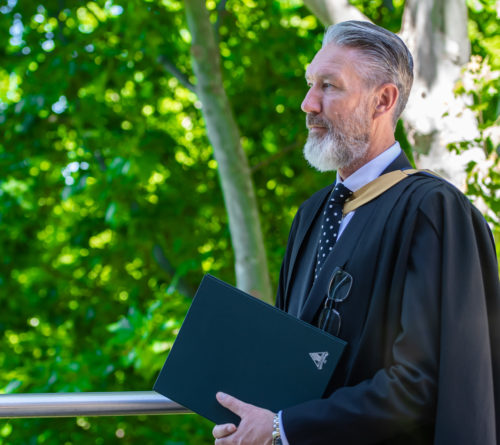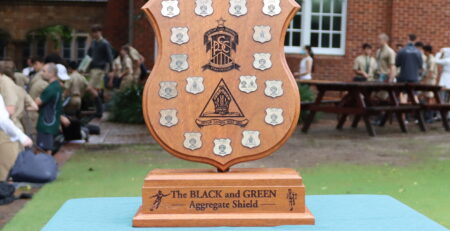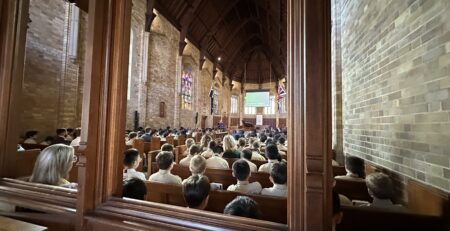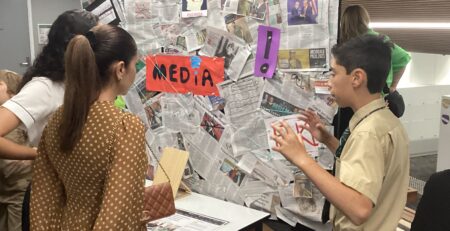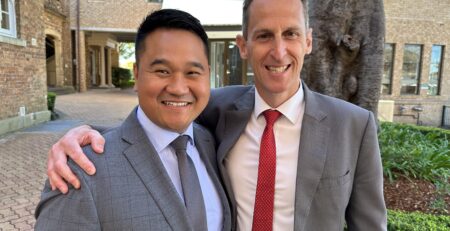From the Deputy Head Master – Summer Hill
We have had a significant number of students in Middle and Senior School presenting to the Health Centre with cold and ‘flu symptoms in the last two days, a number of whom have been sent home because they are unwell. If your son is showing any signs or symptoms of cold or ‘flu he must not attend School.
May I also ask that you continue to encourage your sons to practice good hygiene. Handwashing, hand sanitising, covering coughs and sneezes, using tissues, and disposing of them immediately, encouraging your sons to maintain social distancing, including avoiding handshaking and the sharing of drinks and food, are all sensible and reasonable measures that we ought to practise as a matter of course.
Yesterday was National Sorry Day, the day Australia commemorates Aboriginal and Torres Strait Islander people who were forcibly removed from their families, and who have become known as the Stolen Generation. The first National Sorry Day was held on May 26, 1998, one year after the tabling of the report from the National Inquiry into the Separation of Aboriginal and Torres Strait Islander Children from their families. Almost a decade after that, on February 13, 2008, then Prime Minister Kevin Rudd delivered an apology to members of the Stolen Generation. Sorry Day marks the beginning of Reconciliation Week which, at Trinity, culminates in what has become the Annual Reconciliation Week fixtures against Barker College on 4 June.
The Trinity Grammar School Summer Hill and Strathfield Campuses sit on the land of the Wangal people of the Eora Nation, and the Woollamia Campus is on Jerrinja Wandi Wandian country. We acknowledge the traditional custodians of the land upon which we teach our boys and young men and upon which we work. In His wisdom and love, our heavenly Father gave this estate to Australia’s First Peoples, Aboriginal and Torres Strait Islander Australians. Upon this land they met for generations until the coming of Europeans. As we continue to learn to live together on these ancestral lands, we acknowledge and pay our respects to their elders, past and present, and pray that God will unite us all in the knowledge of His Son, in whom all things were created, in heaven and on earth, visible or invisible – for all things have been created through Him and for Him.
Our vision is to acknowledge our shared history and to accept that we all have a role to play when it comes to reconciliation and that we have a responsibility to build a community that values Aboriginal and Torres Strait Islander peoples, history and culture. In so doing, we seek to deepen the foundations of respect and understanding that are articulated in our ethos, that this is God’s world, and we belong to Him and depend on Him, and that Jesus Christ is both Lord and Saviour.
This week, Matthew Lubke 12Ta spoke to the boys and young men of the School about leadership. It was interesting to hear his reflections, especially the focus on the often undervalued and misunderstood power of humility. It was also very edifying to hear that his occasional remarks echoed the high value that Trinity places on growth, the quality that is the focus of this term’s Life Skills Programme. A precis of his remarks follows.
In the light of last week’s Federal election, I would like to take a few minutes to talk about student leadership.
The high value Trinity places on leadership can be seen in the multitude of leadership opportunities offered across the School, including appointments as captains of sports teams, the structured leadership programme in Cadets, leaders of different musical ensembles, Monitors, Peer Support Leaders, membership of the Student Senate, House Vice-captains and School Officers.
These positions are often given with specific goals in mind to support aspects of the School. But this responsibility of improving the School isn’t just up to these leaders with badges. It’s everyone in the student body’s duty to step up as leaders. But what does that actually look like? Well, each year the School Officers receive a copy of a little book, Humilitas, by John Dickson which describes leadership as “the art of inspiring others in a team to contribute their best toward a goal”. Examples of this in everyday School life include showing respect on the sporting field, helping out in House Meetings, participating in Tutor period, and going out of your way to help out visitors to the School. It can also be as simple as waiting your turn in the cafeteria line and not cutting in.
I have come to the view that good leaders all share one key characteristic: humility. Humilitas advances the powerful thesis that a “humble (leader) is marked by a willingness to hold power in service of others”. This means that those in leadership positions must first understand they aren’t appointed to better themselves or boost their ego, that leadership is not a reward as much as an obligation, but that they are in that position to serve others and better the School.
In our rapidly changing world, high-quality leaders who lead with humble, Godly, and democratic values are needed more than ever to tackle the problems facing our world, including climate change, poverty, political and social discourse, and conflicts. Most of these issues aren’t going away anytime soon, so I would like to encourage all of you to look at your lives and think about where you can start to exercise your leadership.
Bradley Barr | Deputy Head Master – Summer Hill

